The “Puppy Palace” at Mitchell Gold’s House Is an Eco-Friendly Sanctuary
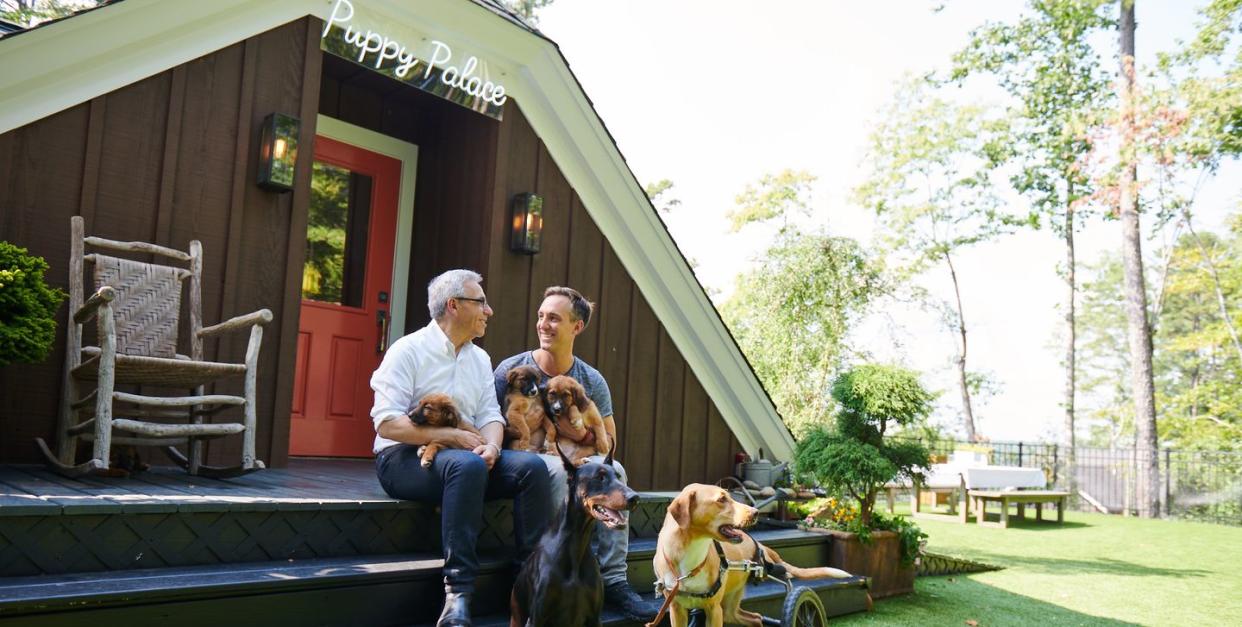
Tim Gold’s original goal in life was to write the next great American novel. That all changed one day, however, when his husband, Mitchell Gold—of Mitchell Gold + Bob Williams fame—brought home a new puppy. The Labrador mix, named Little Champ (“LC” for short), was born with fluid buildup in her spine, which made it difficult for her to navigate the Golds’ North Carolina home. “Because of her disability, she can’t live in the house, so we had to build a special place where LC has all of the accommodations and freedom she needs.”
Thus, the Puppy Palace was born. The Golds had originally intended to renovate the 700-square-foot area above their garage in order to provide a home for live-in staff, but that project was never finished. They soon realized that with some work, the vacant space could instead be transformed into a sort of halfway house for other disabled dogs like Little Champ.
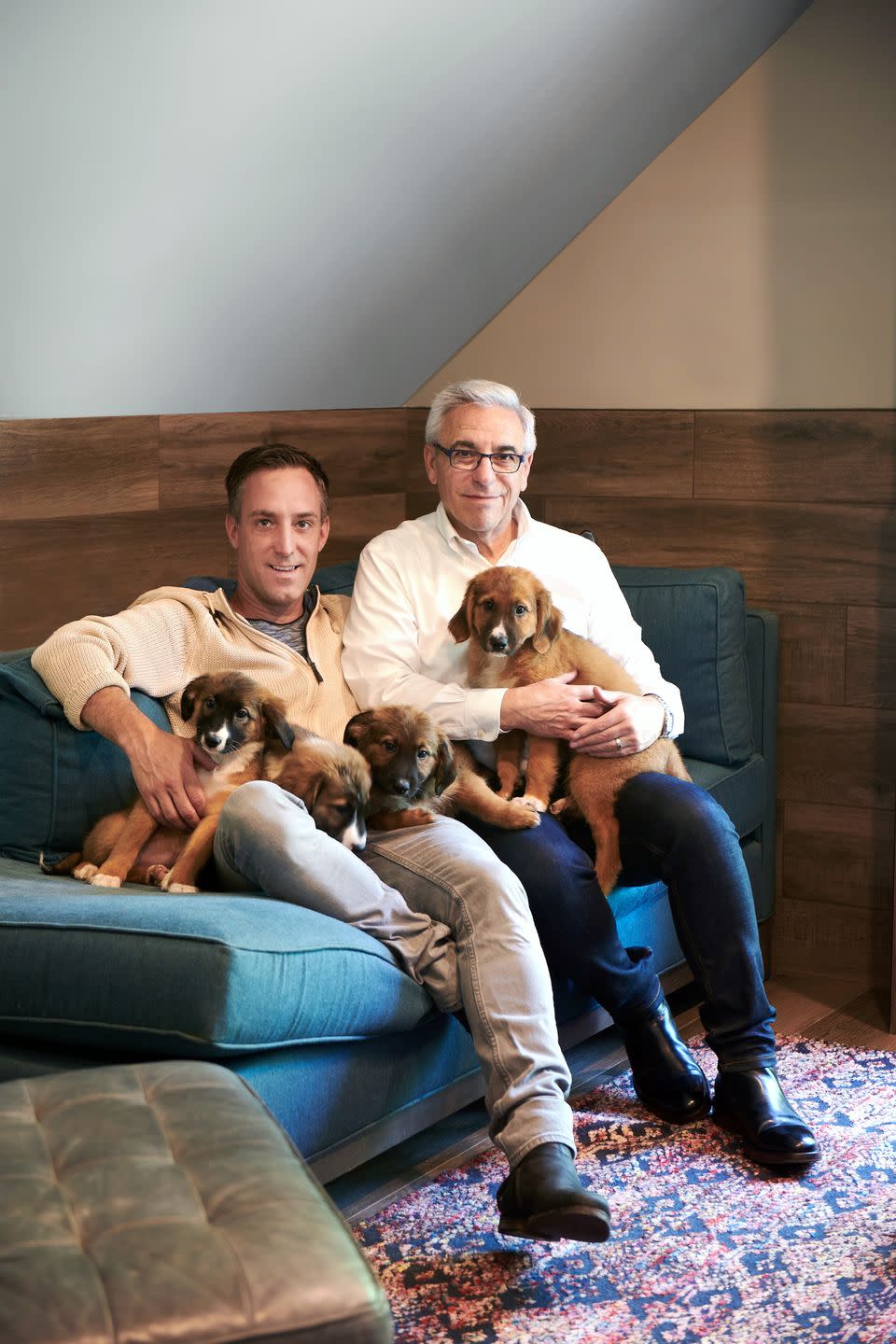
But this is not just any old story about man’s best friend. Because the Golds were involved, eco-friendliness was kept top of mind throughout the entire design and building process—Tim applied the same environmental standards to the Puppy Palace that Mitchell uses for designs at MGBW, where they were advocating for sustainability in the furniture market long before it became a buzzword. So Tim consulted with Susan Inglis, executive director of the Sustainable Furnishings Council, in order to ensure that this renovation used only environmentally responsible and healthy materials: He chose porcelain tile with a faux-wood finish for the flooring instead of an inexpensive vinyl; the living room furniture is covered in natural, chemical-free textiles; and the wood used throughout the project was locally and responsibly sourced.
The Puppy Palace is broken into four distinct zones—the kennel suites, a training area, a kitchen/bath station, and a living area complete with sofas and chairs—and can accommodate up to 14 foster puppies; these come from the nearby Humane Society of Catawba County, which gives the Golds foster dogs they do not have space to care for. (The Golds are still fostering puppies during the COVID-19 pandemic; they’ve seen an uptick in adoptions, too, as people now have time at home to devote to training and caring for a new dog.)
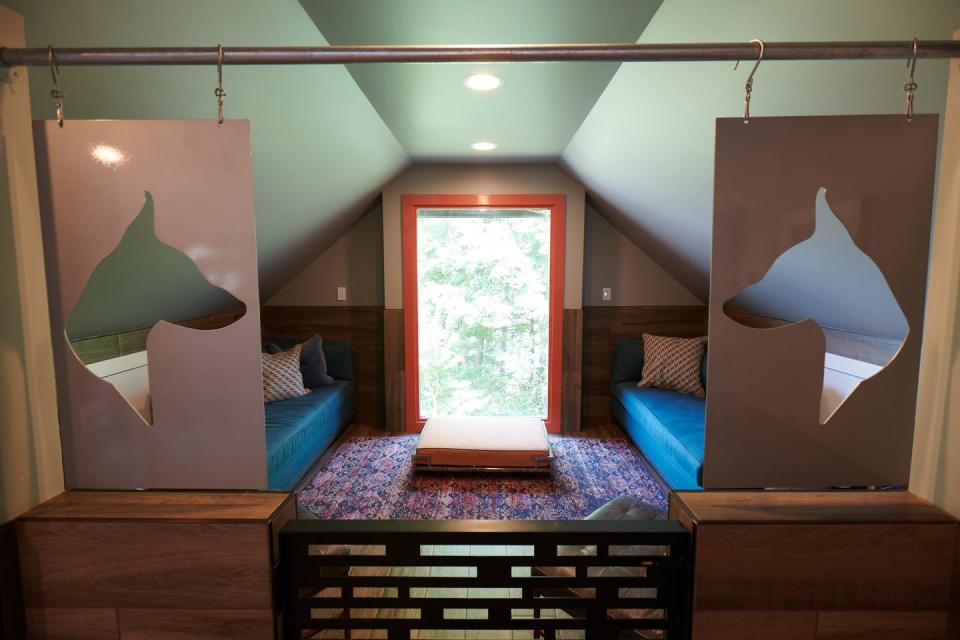
Efficiency and accessibility were key in the design. The exterior door is equipped with an automated button and a ramp to allow for easy access; Little Champ has even learned to open the door on her own.
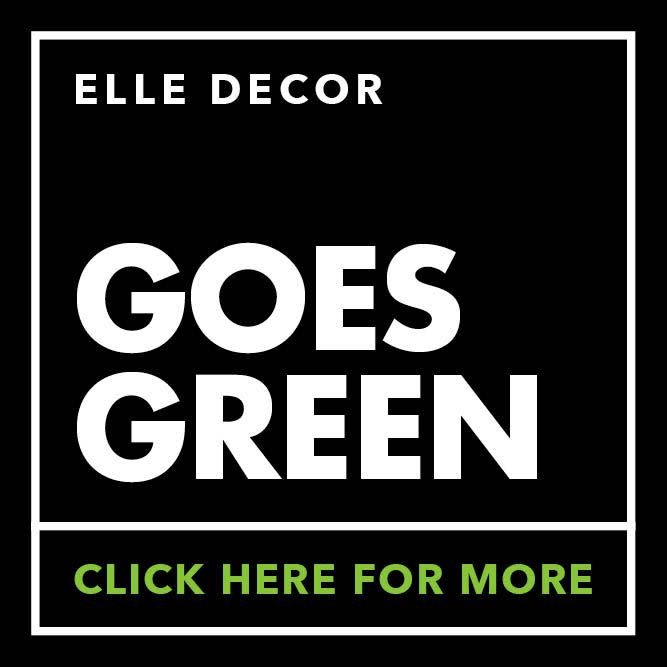
For Tim Gold, one takeaway from this project was that traditional kennels and animal shelters are not always constructed with disabled animals in mind. With the Puppy Palace, he has created a sanctuary for these dogs, a place where they can be trained and nurtured until they are ready for their forever homes—and he built this sanctuary in the greenest way possible. “Once when we were picking up new fosters, I overheard a young worker in the back of the shelter say, ‘Those dogs just got the break of their lifetime.’ ” Tim says. “I loved hearing that.”
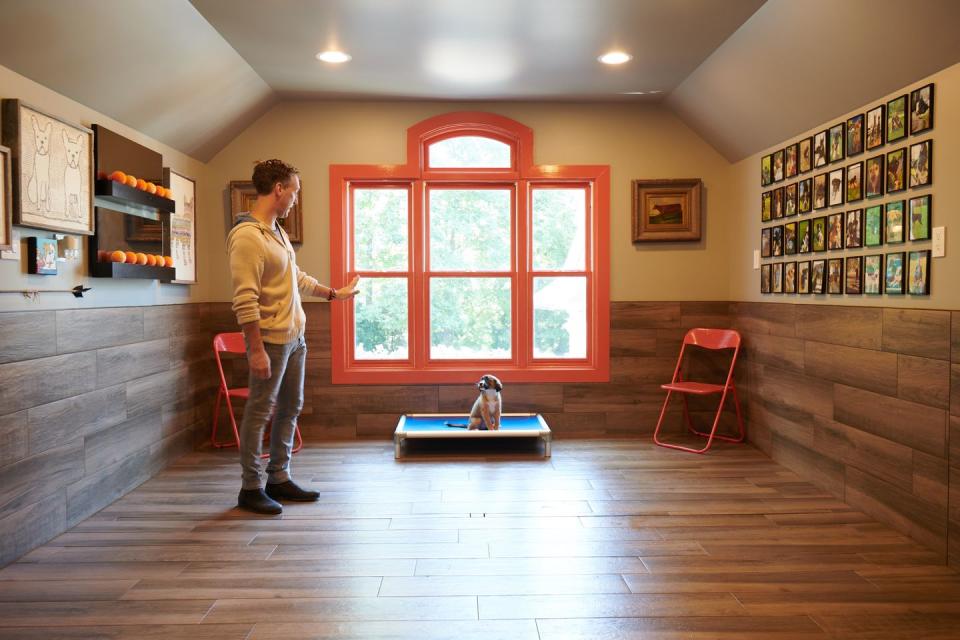
You Might Also Like

